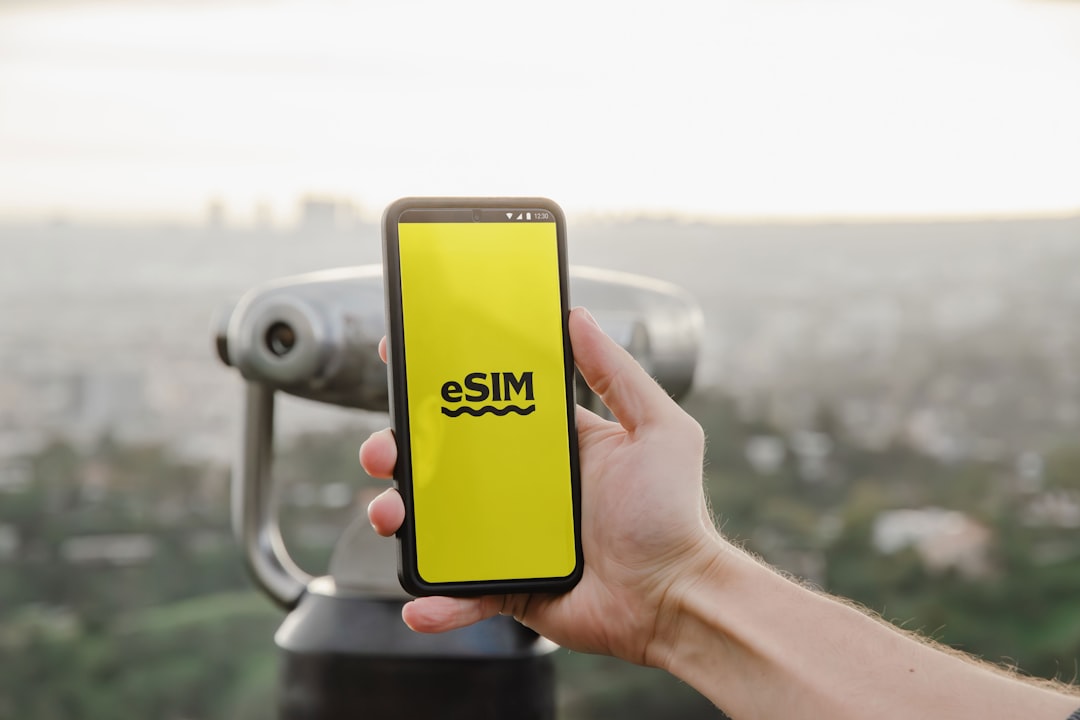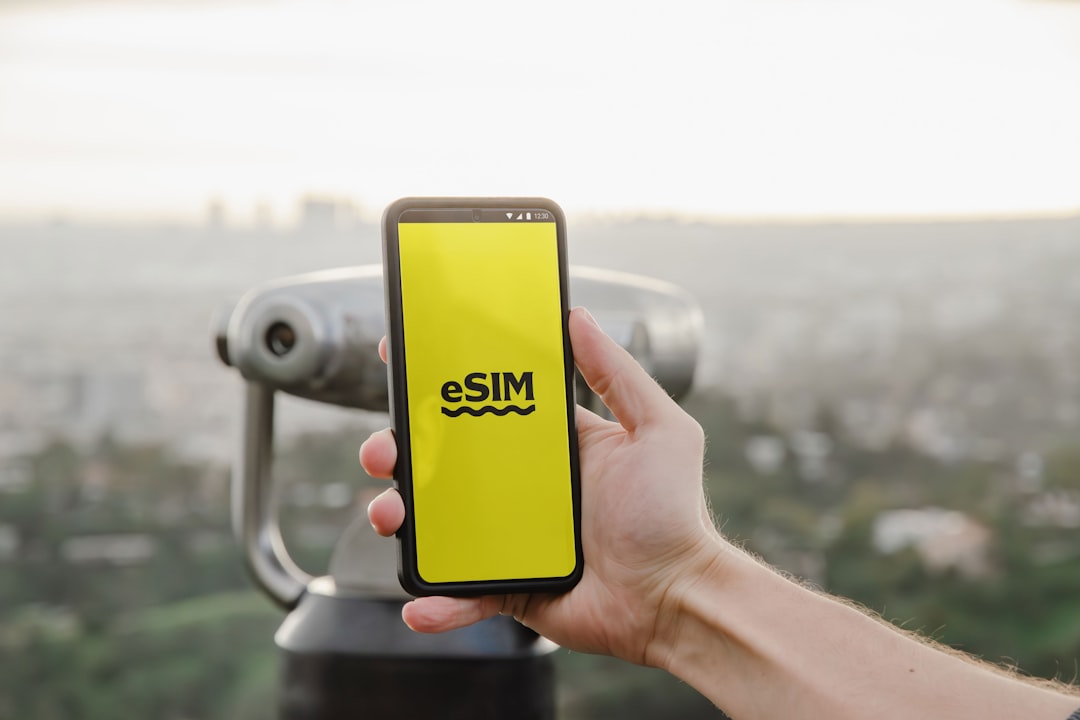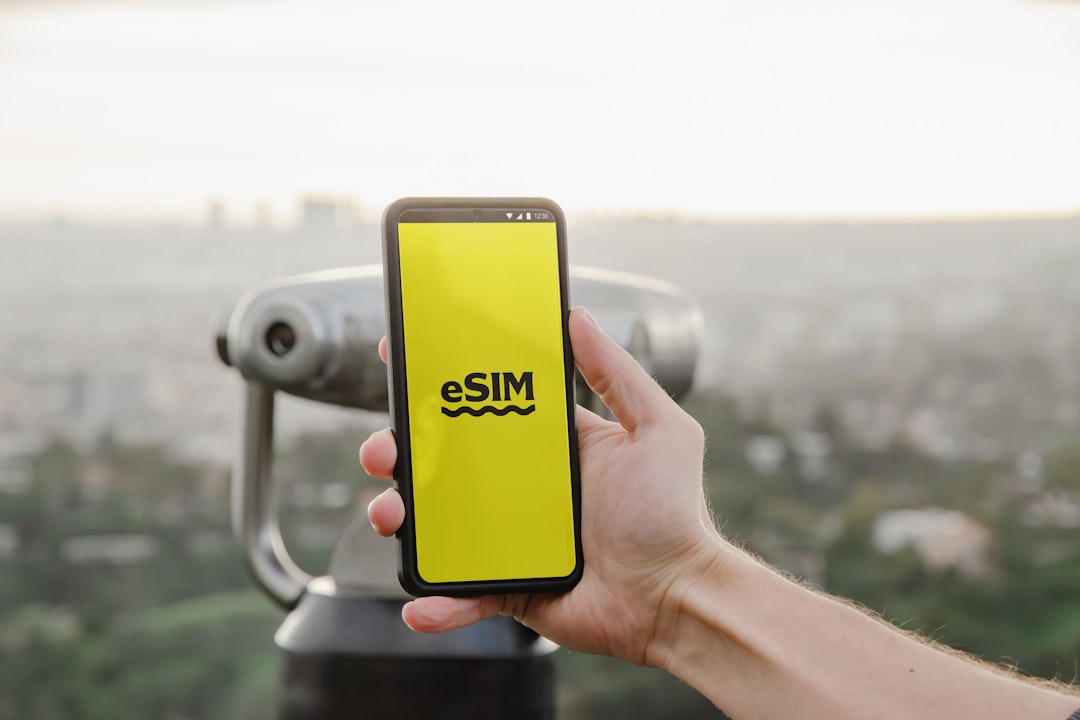The Definitive Nomad Library Apps Podcasts and Learning Paths

Introduction
Living a location‑independent lifestyle demands more than a passport and a laptop. It requires a carefully curated toolkit that helps you stay productive, manage finances, stay healthy, and keep learning while you hop between time zones. The purpose of this guide is to gather the most reliable, up‑to‑date resources for digital nomads in one place. Whether you are a seasoned traveler or just testing the waters, the apps, books, podcasts, and learning paths below will help you navigate the challenges of remote work, deepen your skill set, and stay inspired on the road.
Core Productivity Apps
Task and Project Management
- Todoist – Simple yet powerful. Use labels, filters, and natural‑language input to capture tasks on the go. The free tier covers most needs, while the premium version adds reminders, comments, and automatic backups.
- Asana – Ideal for team‑based projects. Its board view mirrors a Kanban board, and the timeline feature helps you visualize deadlines across multiple time zones.
- Notion – All‑in‑one workspace that combines notes, databases, and wikis. Nomads love it for building travel itineraries, tracking expenses, and storing research in a single, searchable hub.
Time Tracking and Focus
- Toggle Track – One‑click start/stop timers, automatic idle detection, and detailed reporting. Perfect for freelancers who need to invoice by the hour.
- Forest – A gamified focus timer that grows a virtual tree while you stay off your phone. The visual reward helps maintain concentration during long writing or coding sessions.
- RescueTime – Runs in the background and provides insights into how you actually spend your day. Use the weekly reports to identify productivity leaks.
Document Creation and Collaboration
- Google Workspace – Real‑time collaboration on Docs, Sheets, and Slides. The offline mode ensures you can keep working even when internet is spotty.
- Microsoft 365 – Offers the full Office suite with desktop apps that work offline. The cloud integration with OneDrive makes sharing across devices seamless.
- Dropbox Paper – Lightweight markdown‑style editor that integrates directly with Dropbox storage, great for quick brainstorming and meeting notes.
Communication
- Slack – Most remote teams use Slack for daily chats, file sharing, and integrations with tools like Google Drive and Asana. The mobile app works well on limited data plans.
- Microsoft Teams – Combines chat, video calls, and file collaboration, especially useful if you work with organizations that are already on the Microsoft ecosystem.
- Signal – End‑to‑end encrypted messaging for personal conversations. It respects privacy and works even on slower networks.
Cloud Storage
- Google Drive – 15 GB free, easy sharing, and deep integration with Google Workspace.
- Dropbox – Reliable sync, excellent version history, and selective sync options that let you keep local storage light.
- pCloud – Offers a one‑time lifetime purchase option, which can be cost‑effective for long‑term storage needs.
Financial Management Tools
Budgeting and Expense Tracking
- YNAB (You Need A Budget) – Focuses on proactive budgeting. The rule‑based approach helps you allocate every dollar before it’s spent.
- Mint – Aggregates bank accounts, credit cards, and bills into one dashboard. Alerts you to unusual charges and upcoming due dates.
- Trail Wallet – Designed for travelers. Simple interface lets you set daily, weekly, or monthly spending limits in multiple currencies.
Currency Conversion and International Payments
- Wise (formerly TransferWise) – Low‑cost international transfers and multi‑currency accounts. The debit card works globally with real‑time exchange rates.
- Revolut – Offers a prepaid card, crypto trading, and budget analytics. Free tier includes a limited amount of fee‑free currency exchange each month.
- Currency Converter Plus – Offline conversion tables for when you have no internet access.
Invoicing and Taxes
- FreshBooks – Invoice creation, time tracking, and expense management in one platform. Automated reminders help you get paid faster.
- Wave – Free accounting software for freelancers. Includes invoicing, receipt scanning, and basic tax reports.
- Taxfix – Simplifies tax filing for expats and nomads in several European countries. The app walks you through the required forms step by step.
Travel Planning and Accommodation
Flight and Hotel Search
- Skyscanner – Flexible date search, price alerts, and the ability to browse nearby airports.
- Google Flights – Visual calendar view of price trends, plus the “Explore” map that shows cheapest destinations from your departure city.
- Hopper – Predicts the best time to book and sends push notifications when prices drop.
Short‑Term Stays
- Airbnb – Wide range of listings, from shared rooms to entire homes. Filters for “Work‑friendly” spaces with desks and Wi‑Fi.
- Booking.com – Extensive hotel inventory, often with free cancellation. Useful for last‑minute bookings.
- Nomad List – Community‑driven rankings of cities based on cost of living, internet speed, safety, and vibe. Great for scouting new base locations.
Long‑Term Rentals
- HousingAnywhere – Platform for sublets and medium‑term rentals, popular among students and expats.
- Spotahome – Verified listings with video tours, reducing the risk of scams.
- Facebook Groups – Local “Digital Nomads” groups often share sublet opportunities that aren’t listed on mainstream sites.
Co‑Working and Community
- Coworker – Database of coworking spaces worldwide, complete with photos, pricing, and user reviews.
- Workfrom – Curated list of cafes and coworking spots with reliable Wi‑Fi, plus community tips.
- Meetup – Find local tech, language, or hobby meetups to build a social network in each city.
Health, Safety, and Well‑Being
Telemedicine
- Doctor on Demand – Video visits with licensed physicians, useful for minor illnesses or prescription refills.
- HealthTap – AI‑driven symptom checker and access to doctors in over 190 countries.
Travel Insurance
- World Nomads – Tailored for long‑term travelers, covering adventure sports and medical evacuation.
- SafetyWing – Subscription‑based insurance that can be purchased month‑to‑month, perfect for nomads who want flexibility.
Mental Health
- Headspace – Guided meditations, sleep stories, and mindfulness exercises.
- BetterHelp – Online therapy with licensed counselors, accessible from any device.
Connectivity Solutions
- Skyroam Solis – Portable Wi‑Fi hotspot with global coverage. Pay‑as‑you‑go data plans eliminate the need for local SIM cards.
- Airalo – Marketplace for eSIMs. Purchase data bundles for specific countries or regions without swapping physical cards.
- ExpressVPN – Secure, fast VPN with servers in 94 countries. Essential for accessing region‑locked services and protecting data on public Wi‑Fi.
Essential Reading for Nomads
Classic Travel Narratives
- The Art of Travel by Alain de Botton – Philosophical look at why we travel and how to get the most out of the experience.
- Vagabonding by Rolf Potts – A manifesto for long‑term travel, focusing on mindset and practical tips.
- The 4‑Hour Workweek by Timothy Ferriss – The book that sparked the modern digital nomad movement, with strategies for automating income and escaping the office.
Productivity and Remote Work
- Deep Work by Cal Newport – Explores the importance of focused, distraction‑free work in a hyper‑connected world.
- Remote by Jason Fried & David Heinemeier Hansson – Insightful guide on building and thriving in remote teams.
- Atomic Habits by James Clear – Practical framework for building tiny habits that compound into major life changes, ideal for nomads seeking routine on the road.
Financial Independence
- Your Money or Your Life by Vicki Robin & Joe Dominguez – Steps to transform your relationship with money and achieve financial freedom.
- The Simple Path to Wealth by JL Collins – Straightforward advice on investing, especially through low‑cost index funds.
- Early Retirement Extreme by Jacob Lund Fisker – A more radical approach to frugality and financial independence, useful for those looking to fund extended travel.
Lifestyle Design
- The Minimalist Entrepreneur by Sahil Lavingia – How to build a lean, location‑agnostic business with minimal overhead.
- Digital Nomad Handbook by Lonely Planet – Practical tips for visas, insurance, and everyday life on the move.
- How to Travel the World on $50 a Day by Matt Kepnes – Budget travel strategies that demonstrate how to stretch every dollar.
Skill‑Specific Books
- Coding – Eloquent JavaScript by Marijn Haverbeke – A modern introduction to JavaScript, perfect for building web apps while traveling.
- Design – Don’t Make Me Think by Steve Krug – Usability principles for designers and developers alike.
- Marketing – Contagious: How to Build Word of Mouth in the Digital Age by Jonah Berger – Insights into creating shareable content and viral campaigns.
- Language Learning – Fluent Forever by Gabriel Wyner – Techniques for rapid language acquisition, a useful skill for immersive travel.
Podcasts to Keep You Inspired
General Nomad Lifestyle
- The Nomad Podcast – Interviews with seasoned travelers who share their stories, tools, and lessons learned.
- Zero To Travel – Host Jason Moore explores topics from visa strategies to remote work best practices.
- Travel with Purpose – Focuses on sustainable travel, community projects, and making a positive impact while on the road.
Productivity and Remote Work
- The Remote Work Podcast – Tips from leaders of remote‑first companies on culture, communication, and technology.
- The Tim Ferriss Show – Deep‑dive conversations with high‑performers across fields, often covering lifestyle design and productivity hacks.
- The Indie Hackers Podcast – Stories of creators building profitable online businesses, many of which are location‑independent.
Business and Entrepreneurship
- StartUp – Narrative series about building a company from the ground up, with episodes that discuss funding, scaling, and remote team dynamics.
- Side Hustle School – Daily 10‑minute episodes that showcase quick‑to‑launch business ideas.
- The Smart Passive Income Podcast – Pat Flynn shares strategies for generating passive income streams that support a nomadic lifestyle.
Finance and Investing
- ChooseFI – A community‑driven show about financial independence, early retirement, and smart investing.
- The Money Guy Show – Practical advice on budgeting, debt reduction, and building wealth.
- Planet Money – Engaging explanations of economic concepts that affect travelers, from currency fluctuations to global trade.
Personal Development
- The Minimalists Podcast – Discussions on simplifying life, decluttering, and focusing on experiences over possessions.
- The School of Greatness – Interviews with athletes, entrepreneurs, and thought leaders about mindset and achievement.
- Optimal Living Daily – Curated readings of personal development blogs, delivered in an audio format for easy consumption while commuting or working.
Structured Learning Paths
Below are three curated learning tracks designed to equip you with the skills most valuable for a sustainable digital nomad career. Each path blends free resources, paid courses, and hands‑on projects, allowing you to progress at your own pace.
Path A – Full‑Stack Web Development
-
Foundations
- HTML & CSS – FreeCodeCamp’s Responsive Web Design Certification (≈ 300 hours of exercises).
- JavaScript Basics – “JavaScript Basics” on Codecademy (interactive lessons, 40 hours).
-
Intermediate Skills
- Front‑End Frameworks – React Fundamentals on Scrimba (project‑based, 30 hours).
- Version Control – Git & GitHub Crash Course on YouTube (free, 3 hours).
-
Back‑End Development
- Node.js & Express – “The Complete Node.js Developer Course” on Udemy (paid, 25 hours of video).
- Database Fundamentals – PostgreSQL for Beginners on Coursera (free audit, 15 hours).
-
Deployment & Ops
- Docker Basics – “Docker Essentials” on Pluralsight (12 hours, free trial available).
- Cloud Hosting – Deploying Apps on Vercel or Netlify (official documentation and tutorials).
-
Portfolio Project
- Build a SaaS‑style web app that solves a niche problem for travelers (e.g., itinerary manager, expense splitter). Host it on a free tier, showcase on GitHub, and write a case study blog post.
-
Freelance Launch
- Create a profile on Upwork or Fiverr, leveraging your portfolio.
- Use “The Freelance Blueprint” by Nathan Allotey (free ebook) for client acquisition strategies.
Path B – Digital Marketing & Content Creation
-
Core Principles
- Marketing Fundamentals – “Digital Marketing Specialization” on Coursera (free audit, 6 months of content).
- Copywriting – “Copywriting Basics” on HubSpot Academy (free, 5 hours).
-
SEO & Analytics
- SEO Fundamentals – “SEO Training Course” by Moz (free videos, 8 hours).
- Google Analytics – “Google Analytics for Beginners” on Google Skillshop (free certification).
-
Social Media Strategy
- Instagram & TikTok – “Social Media Marketing Masterclass” on Skillshare (free trial, 10 hours).
- Community Building – “Building Online Communities” on LinkedIn Learning (free month, 6 hours).
-
Paid Advertising
- Facebook Ads – “Facebook Ads for Beginners” on AdEspresso Academy (free, 4 hours).
- Google Ads – “Google Ads Certification” on Skillshop (free, 8 hours).
-
Content Production
- Video Editing – “Video Editing with DaVinci Resolve” on YouTube (free, 10 hours of tutorials).
- Podcast Production – “Podcasting 101” on Anchor’s resource hub (free guide).
-
Capstone Project
- Launch a niche blog or YouTube channel aimed at digital nomads (e.g., “Best Wi‑Fi Cafes in Bali”). Apply SEO, create a content calendar, run a small ad campaign, and measure results with Google Analytics.
-
Monetization
- Affiliate marketing through platforms like ShareASale or Amazon Associates.
- Offer consulting services for other nomads looking to improve their online presence.
Path C – Remote Business Management & Leadership
-
Remote Work Foundations
- Managing Remote Teams – “Remote Work Foundations” on LinkedIn Learning (free month, 7 hours).
- Asynchronous Communication – “Async Communication” article series on GitLab Handbook (free reading).
-
Operations & Systems
- Process Automation – “Zapier Essentials” on Zapier University (free, 5 hours).
- Project Management – “Project Management Fundamentals” on Coursera (free audit, 15 hours).
-
Financial Management
- Business Accounting – “Accounting for Small Businesses” on Khan Academy (free, 12 hours).
- Pricing Strategies – “Value‑Based Pricing” on Udemy (paid, 2 hours).
-
Leadership & Culture
- Psychological Safety – “Building Trust in Remote Teams” on Harvard Business Review (free article).
- Conflict Resolution – “Managing Conflict” on Coursera (free audit, 4 hours).
-
Scaling a Remote Business
- Growth Hacking – “Growth Hacking with Digital Tools” on Skillshare (free trial, 8 hours).
- Legal Considerations – “International Business Law for Entrepreneurs” on Udemy (paid, 6 hours).
-
Practical Implementation
- Create a SOP (Standard Operating Procedure) library for a hypothetical remote agency (e.g., copywriting, design, or consulting).
- Set up a recurring billing system using Stripe or Paddle, and integrate it with a CRM like HubSpot.
- Run a quarterly OKR (Objectives and Key Results) cycle with a small distributed team (use tools like Weekdone or Gtmhub).
-
Certification (Optional)
- Obtain the “Professional Remote Work Certificate” from Remote Work Academy (paid, 40 hours of coursework, globally recognized).
How to Combine Resources Efficiently
-
Start Small, Build Momentum
Choose one category (apps, books, podcasts, or learning path) and commit to using it for two weeks. For example, install Todoist and set up a daily review habit before adding a new podcast to your routine. -
Create a Central Knowledge Hub
Use Notion or a dedicated Google Sheet to catalog every tool, book, and course you encounter. Include columns for “Status” (Not Started, In Progress, Completed), “Priority”, and “Link”. -
Leverage Cross‑Learning
Many podcasts discuss books in depth; listen to an episode of “The Tim Ferriss Show” that reviews “The 4‑Hour Workweek” and then read the corresponding chapter. This dual exposure reinforces concepts. -
Apply Immediately
When you finish a course module on SEO, apply the learnings to your own blog or client site that week. Immediate application helps cement knowledge and yields measurable results. -
Schedule Regular Reviews
Once a month, review your knowledge hub, retire tools you no longer need, and add new resources discovered during travel. This keeps the library lean and relevant.
Tips for Staying Updated
- Subscribe to Newsletters – “Nomad List Weekly” and “Morning Brew” deliver curated updates on travel deals, remote‑work tools, and tech trends.
- Follow Influencers on Twitter – Thought leaders like @naval, @shawnwang, and @hackernews often share new resources before they become mainstream.
- Join Community Slack Channels – Nomad‑focused workspaces such as “Digital Nomad Hub” and “Remote Work Community” provide peer recommendations and real‑time troubleshooting.
- Attend Virtual Conferences – Events like “Nomad Summit” and “Remote Work Expo” showcase the latest apps, services, and industry research.
Frequently Asked Questions
Do I need a separate laptop for travel?
A reliable laptop with a good battery life (8‑10 hours) and solid-state storage is essential. Many nomads prefer ultrabooks like the MacBook Air M2 or Dell XPS 13 because they balance performance and portability. A secondary device such as a tablet can be useful for reading, sketching, or video calls when you want to keep the laptop safe.
How can I manage time‑zone differences with clients?
Use a world‑clock app (e.g., World Clock Pro) to display the working hours of your major clients. Set “office hours” in your calendar that overlap with at least one of your client’s time zones, and communicate those windows clearly. Automated scheduling tools like Calendly can also adjust for time‑zone differences on the fly.
Is it safe to rely on public Wi‑Fi?
Public Wi‑Fi is convenient but vulnerable. Always use a VPN when connecting to unsecured networks, enable two‑factor authentication on critical accounts, and avoid conducting sensitive transactions (e.g., banking) on public hotspots unless you have a secure tunnel.
What visas do I need for long‑term stays?
Visa requirements vary by country and length of stay. Many nations now offer “digital nomad visas” that allow up to 12‑months of remote work. Research each destination on the official immigration website, or use resources like the “Nomad Visa Guide” on VisaGuide.World for up‑to‑date information.
How can I maintain health insurance across borders?
International health insurance plans such as SafetyWing or World Nomads provide coverage in multiple countries and are renewable on a monthly basis. For short trips, many travel credit cards include medical benefits, but verify the limits before relying on them.
Conclusion
Building a sustainable nomadic lifestyle is less about a single gadget or book and more about assembling a flexible, interoperable system that adapts to changing environments. The apps listed here keep you productive, organized, and connected; the books deepen your understanding of travel, finance, and personal growth; the podcasts offer ongoing inspiration and practical tips; and the learning paths give you concrete roadmaps to acquire high‑value skills.
Start by selecting a few tools that resonate with your current needs, integrate them into a daily routine, and expand gradually. Treat your “nomad library” as a living resource—regularly prune what no longer serves you and add fresh material as the remote‑work landscape evolves. With the right blend of technology, knowledge, and community, you can turn the world into your office and continue thriving wherever the wind takes you.
Random Posts

Ultimate Nomad Guide to Starting Your Journey
A step-by-step roadmap that turns wanderlust into a sustainable nomadic life, helping you shift mindset, master travel logistics, set up remote work, and join a supportive community with practical checklists.
1 month ago

Nomad Essentials Checklist For New Travelers
Discover the ultimate nomad checklist that turns travel anxiety into confidence. From passports and visas to tech, health, money, packing hacks and safety habits, start your long-term journey fully prepared.
1 month ago

Beginners Roadmap To Freedom On The Move
Follow a step-by-step roadmap that shifts your mindset, builds a lean financial base, equips you with essential gear, sets up remote work, handles legal basics, and creates healthy habits for sustainable nomadic freedom.
1 week ago

The Complete Nomad Starter Kit Checklist and Planning Guide
Ready to hit the road? This guide gives you a step-by-step checklist and planning roadmap for a nomadic life, covering mindset, gear, documents, finances, so you launch confidently and never miss a detail.
1 month ago

First Steps Into Nomad Life With Essential Resources
Learn how to turn the dream of digital nomadism into reality with a clear mindset, must-have tools, and practical steps to pack light, work anywhere, and start living a location-independent life today
2 months ago
Latest Posts

Essential Software Every Remote Professional Should Use
Master remote work with essential tools: instant messaging like Slack, high definition video calls such as Zoom, and asynchronous voice apps. Streamline communication, stay connected and boost productivity.
1 day ago

Mastering Remote Work Productivity for Digital Nomads and Freelancers
Learn proven habits, tools, and tactics that help digital nomads and freelancers stay focused, deliver quality work, and maintain a sustainable lifestyle while traveling the world.
1 day ago

Tech‑Friendly European Towns Perfect for Remote Living
Discover Europe’s best small towns where fast internet, affordable living and vibrant tech communities let you work remotely while soaking up historic charm, lakeside views or mountain air.
1 day ago